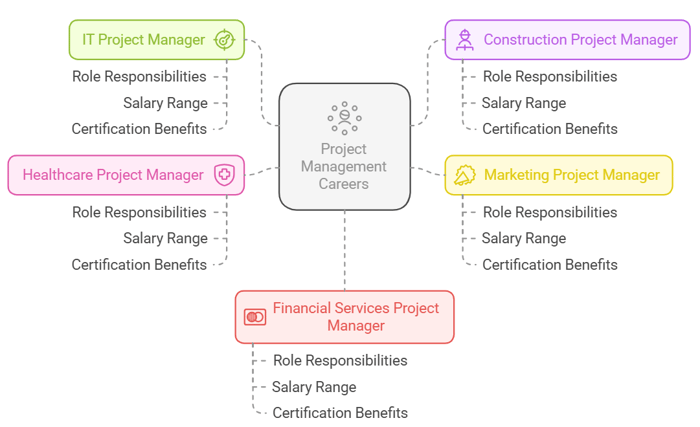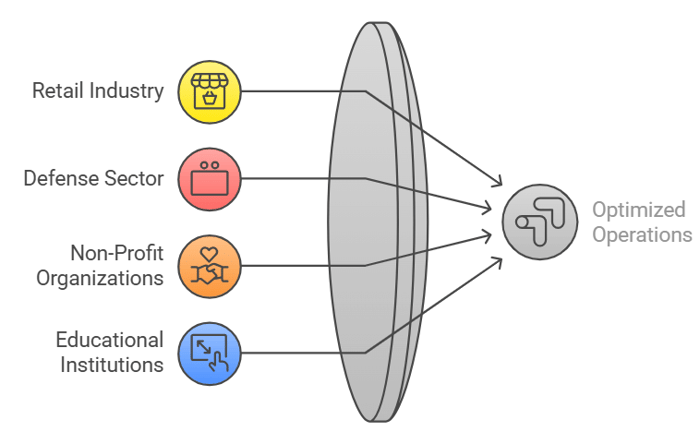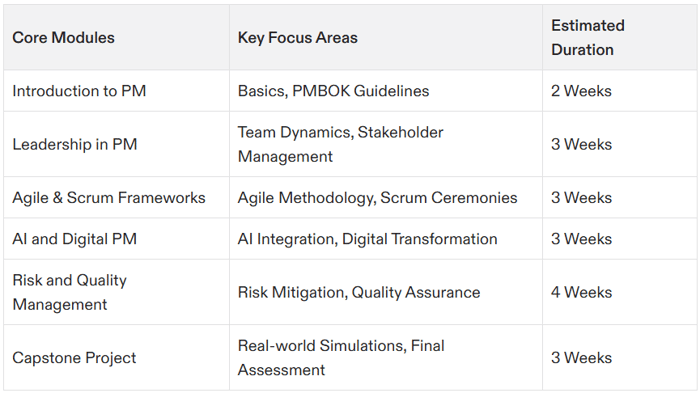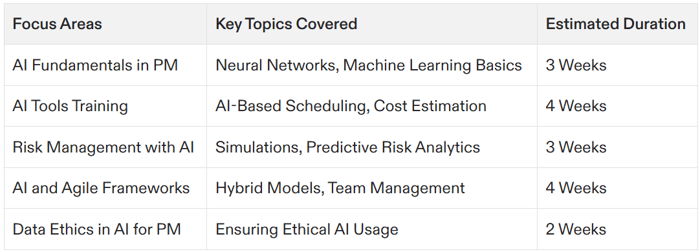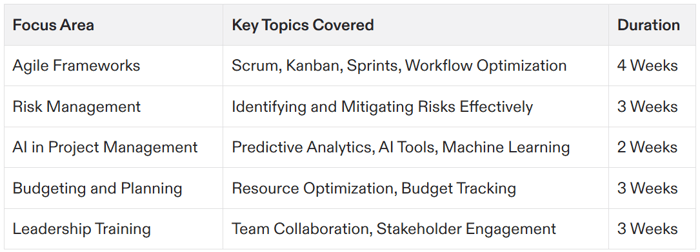Table of Contents
- Why Project Management Certification is Your 2025 Career Superpower
-
- Top Project Management Jobs You Can Secure in 2025
- IT Project Manager: The Tech Maestro
- Construction Project Manager: The Master Builder
- Marketing Project Manager: The Campaign Commander
- Healthcare Project Manager: The Guardian of Efficiency
- Financial Services Project Manager: The Compliance Champion
- Project Management: A Universal Skill Across Industries
- How the APMIC Certification Prepares You for 2025 and Beyond
- Less Commonly Known Facts About Project Management
- Final Thoughts: Your Journey to Project Management Mastery Begins Now
- FAQs
In2025 the job market is always. Requires professionals who can adapt and take charge confidently. Getting certified in project management isn't, about having a certificate—it opens doors to job prospects with good pay in various fields. It's like advancing to the level in your career game but, in life!
Whether you are drawn to the realm of IT or the innovative spirit of marketing or even the crucial domain of healthcare and the tangible outcomes of construction projects. Project managers play a role, in todays workforce landscape Companies are keenly interested in recruiting qualified individuals who have the expertise, in technical skills and established methodologies required for achieving success This goes beyond mere task management. It involves team leadership resource optimization and achieving outstanding outcomes that significantly influence profitability
Ever thought about the job opportunities, with a project management certification and why this credential is so highly regarded? Well then you're in luck because we're here to provide all the information you need about the range of careers that come with a project management certification. We'll delve into the world of job opportunities that await you with a project management certification and show you how credentials, like APMIC Certification can greatly enhance your resume and skill set. Lets dive in and start turning those career aspirations into achievements!
Why Project Management Certification is Your 2025 Career Superpower
Lets first explore the details of roles that require project management certification and understand the significance of having this certification, for your career growth. In 2025 employers are looking for candidates who can showcase their skills with certifications such, as APMIC,PMP or PRINCE 2.Besides being credentials these certifications demonstrate your practical capabilities in;
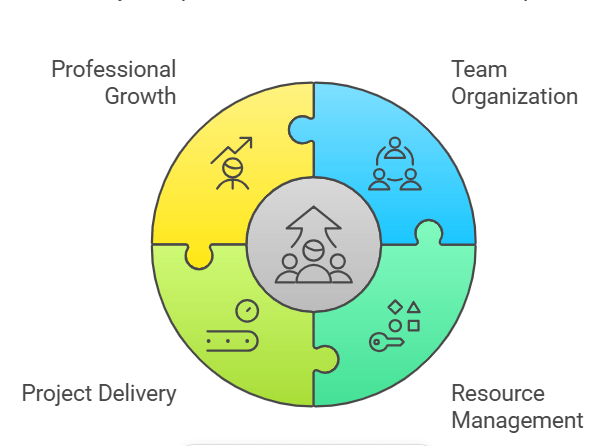
Organize and lead teams effectively.
Manage resources efficiently and strategically.
Deliver projects successfully, on time, and within budget.
Demonstrate a strong commitment to professional growth and leadership.
Project management experts, with certifications often land top tier jobs that offer pay in todays job market because these credentials match precisely what employers are looking for in practice and equip applicants with the necessary frameworks and methods to succeed effectively. From mastering Agile and Scrum to handling risks and communicating with stakeholders effectively. A robust project management certification gives you the resources needed to tackle the intricacies of projects, with assurance.
In addition, to that point made earlier about the data showing that project managers with certifications tend to earn around 20% more than those without certification; it's interesting to note that sectors like IT and finance are now paying dollar to certified experts for their valuable contributions in these fields. Certifications, like the ones offered by APMIC have been tailored to suit the evolving needs of todays workplaces and are highly sought after by companies worldwide.
Top Project Management Jobs You Can Secure in 2025
IT Project Manager: The Tech Maestro
Key Role: An IT project manager is responsible for overseeing software development, system upgrades, and cybersecurity projects, ensuring alignment with overarching business objectives.
Why This Role Suits a Certified Professional: IT projects are inherently complex, demanding a strong understanding of frameworks such as Agile, Scrum, and Kanban—all of which are comprehensively covered in top-tier project management programs, including the APMIC certification. Certification demonstrates your ability to effectively manage these sophisticated and often high-stakes undertakings.
Average Salary: $110,000 – $150,000 annually.
Construction Project Manager: The Master Builder
Key Role: Overseeing large-scale construction projects from inception to completion, including planning, cost estimation, resource allocation, and strict adherence to safety compliance.
Why This Role Suits a Certified Professional: Construction projects involve numerous phases, diverse teams, and a multitude of stakeholders, making certified project management professionals invaluable assets due to their procedural knowledge, risk management skills, and ability to keep projects on track.
For a more detailed look at how to prepare for construction project management certification online, visit this guide on construction project management certification
Average Salary: $105,000 – $130,000 annually.
Marketing Project Manager: The Campaign Commander
Key Role: Coordinating marketing campaigns, managing cross-functional teams, and overseeing budgets to deliver effective and impactful marketing projects that align with business goals.
Why This Role Suits a Certified Professional: While creative expertise is essential in marketing, success also hinges on flawless execution. This requires the application of project deadlines, meticulous scope management, and efficient resource allocation. Certifications like APMIC train you to seamlessly integrate these skills to drive campaign success.
Average Salary: $85,000 – $115,000 annually.
Healthcare Project Manager: The Guardian of Efficiency
Key Role: Handling the complex logistics for healthcare operations, including IT systems integrations, building facilities, and process improvements. This is a specialized role where certified leadership directly impacts patient care and organizational effectiveness.
Why This Role Suits a Certified Professional: Healthcare project environments demand exceptional efficiency, stringent risk control, and strict adherence to regulatory requirements. Project management certification ensures you’re equipped to tackle these unique challenges while improving patient outcomes.
Average Salary: $95,000 – $125,000 annually.
Financial Services Project Manager: The Compliance Champion
Key Role: Steering financial institutions through critical IT upgrades, ensuring compliance with ever-evolving regulations, and driving operational transformations that enhance efficiency and profitability.
Why This Role Suits a Certified Professional: The banking and finance sectors are heavily regulated, making compliance a top priority. Project managers in this field ensure adherence to regulations while adding value through operational efficiency and strategic risk management. Key certifications like APMIC place a strong emphasis on risk management—a vital skill in this environment.
Average Salary: $100,000 – $140,000 annually.
Project Management: A Universal Skill Across Industries
The appeal of project management certifications lies in their flexibility as they can be used across industries, beyond the sectors mentioned earlier such as retail and defense sectors and even in non profit organizations and academic institutions where there is a growing demand, for competent project managers to enhance efficiency and achieve organizational objectives consistently regardless of your area of interest or expertise project management abilities can make a positive impact.
How the APMIC Certification Prepares You for 2025 and Beyond
Programs like APMIC stand out by offering comprehensive training tailored to a multitude of industries. With its extensive curriculum of over 400 modules, the APMIC certification emphasizes both foundational knowledge and cutting-edge skillsets, including Agile techniques, lean methodologies, and the integration of AI tools in project management. By the time you graduate, you’ll be fully equipped to excel in the roles mentioned above and many more.
Less Commonly Known Facts About Project Management
Project Management Dates Back to Ancient Times: The construction of the Egyptian pyramids is one of the earliest examples of project management, showcasing meticulous planning, resource allocation, and coordination. Source: History.com
The Gantt Chart Was Developed in the Early 1900s: Henry Gantt created this visual tool for project scheduling, which remains a staple in project management today. Source: ASQ
The Critical Path Method (CPM) Was Developed to Manage DuPont's Plant Maintenance: CPM helps determine the longest sequence of activities that must be completed successfully for a project to finish on time. Source: PMI
The U.S. Navy Developed PERT in the 1950s: The Program Evaluation and Review Technique (PERT) was created to manage the Polaris missile project, significantly reducing development time. Source: Naval History and Heritage Command
Project Management Institute (PMI) Was Founded in 1969: PMI has become the leading professional organization for project managers, offering certifications and standards globally. Source: PMI
Agile Project Management Originated in the Software Industry: The Agile Manifesto in 2001 revolutionized software development with its focus on iterative development and customer collaboration. Source: Agile Alliance
To explore how SAFe certifications align with these principles, see our Ultimate Guide to SAFe Project Management Certification.
Project Management is Used Extensively in Disaster Relief: Organizations like the Red Cross use project management principles to efficiently coordinate and manage resources during disaster response efforts. Source: Red Cross
"Scope Creep" is a Common Project Management Challenge: This refers to the uncontrolled expansion of a project’s scope after the project has started, often leading to delays and budget overruns. Source: CIO
Emotional Intelligence is Key for Project Managers: Effective project managers need strong emotional intelligence to lead teams, resolve conflicts, and manage stakeholder expectations. Source: Harvard Business Review
Project Management Skills are Transferable to Personal Life: The principles of planning, organizing, and executing projects can be applied to personal goals, such as planning a wedding or managing a home renovation. Source: Forbes
.
Final Thoughts: Your Journey to Project Management Mastery Begins Now
Jobs with project management certification are not only plentiful but also rewarding, offering immense opportunities for professional growth and significant impact across industries. From overseeing multi-million-dollar IT initiatives to driving innovation in healthcare systems, certified project managers are at the forefront of shaping the future. Programs like the APMIC certification ensure you stay ahead of the curve, equipping you with versatile training, global recognition, and the cutting-edge skills needed to thrive in today's dynamic business environment.
By embarking on this path, you're positioning yourself for exciting and lucrative opportunities across diverse industries, accessing higher salary brackets, and demonstrating leadership in both traditional and evolving roles. Taking the first step with the right certification could be the key to unlocking your full potential as a dynamic and impactful project leader.
And remember, if you're serious about nailing that PMP certification, we've got you covered! Check out our best-in-class PMP Certification Prep Course at APMIC and get ready to conquer that exam!
FAQs
What industries are actively hiring project managers with certifications in 2025?
Certified project managers are in high demand across a diverse range of industries, including IT, manufacturing, marketing, healthcare, and finance. The versatility of these certifications also opens doors in emerging fields such as artificial intelligence, renewable energy, and environmental sustainability.
What are the most valuable and widely recognized certifications for project management jobs in 2025?
Top certifications include those from PMI (PMP), PRINCE2, and APMIC. These certifications are highly regarded for their industry-relevant training, global recognition, and alignment with the latest project management methodologies and best practices.
Is earning a project management certification essential for career advancement in 2025?
While not strictly mandatory, certifications significantly improve your chances of securing senior-level roles, commanding higher salaries, and gaining a competitive edge in the job market. Employers view certified professionals as more skilled, efficient, and committed to excellence.
How does the APMIC certification differentiate itself from other project management certifications?
APMIC certification stands out due to its comprehensive curriculum, which includes over 400 modules, its flexible learning options, and its up-to-date focus on modern tools and technologies such as AI and machine learning. It not only strengthens foundational skills but also prepares professionals for leadership roles in a rapidly evolving business landscape.
What soft skills are crucial for project managers in addition to technical skills?
Leadership
Communication
Problem-solving
Negotiation
Time management
Risk Management
What are the emerging trends in project management for 2025?
Increased use of AI and machine learning in project planning and execution
Greater emphasis on remote project management and virtual teams
Growing adoption of agile and hybrid methodologies
Focus on sustainability and social responsibility in project management practices
How can I stay updated with the latest advancements in project management?
Join professional organizations like PMI
Attend industry conferences and webinars
Read project management blogs and publications
Take continuous education courses and workshops
What are the steps to becoming a certified project manager?
Research different certifications and choose the one that aligns with your career goals
Meet the eligibility requirements, such as education and project management experience
Enroll in a preparatory course or self-study
Pass the certification exam
Maintain your certification through continuing education



